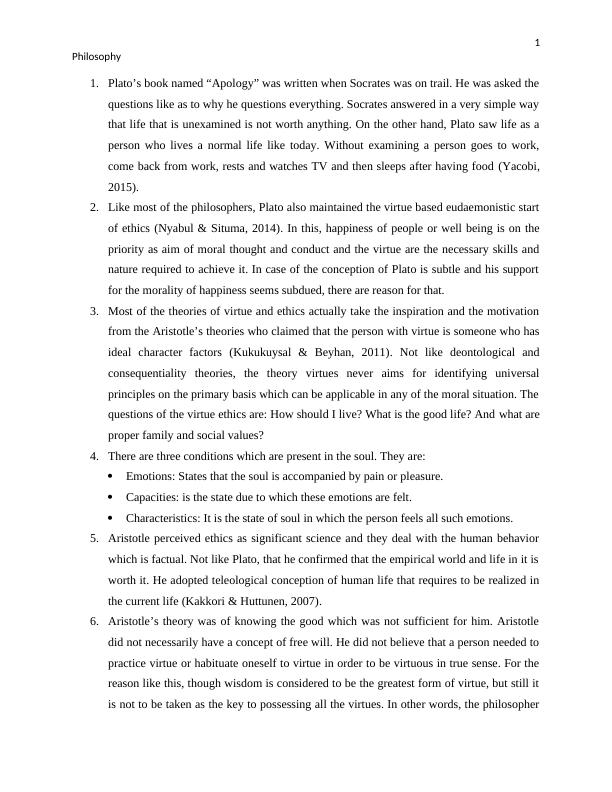Philosophy
Answering questions about Plato and Aristotle's views on the good life, ethics, and the relevance of their theories.
4 Pages712 Words294 Views
Added on 2023-06-10
About This Document
This article explores the philosophy of Plato and Aristotle. It discusses their theories on ethics, virtues, and happiness. It also explains the concept of eudaemonistic ethics and the three conditions present in the soul. The article provides references for further reading.
Philosophy
Answering questions about Plato and Aristotle's views on the good life, ethics, and the relevance of their theories.
Added on 2023-06-10
ShareRelated Documents
End of preview
Want to access all the pages? Upload your documents or become a member.
Aristotle on Nature of Ethics
|4
|705
|363
Ethical Philosophy in Plato’s Apology
|4
|711
|18
Philosophy Suicide in Plato’s - PDF
|4
|1034
|111
Concept of Virtue Ethics Assignment
|4
|1012
|191
Virtue Ethics of Aristotle in Business Ethics Assignment 2022
|9
|2326
|19
THE PHILOSOPHY ASSIGNMENT.
|6
|1231
|44


